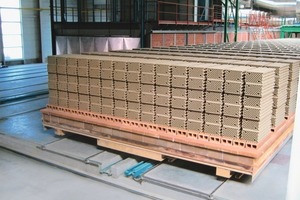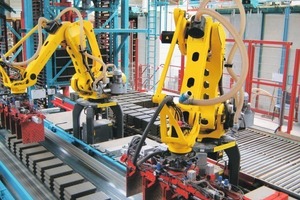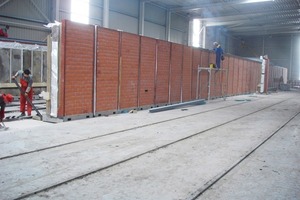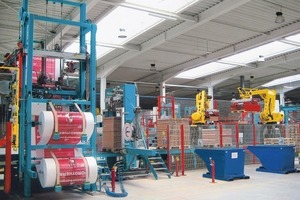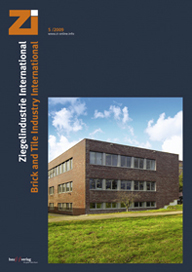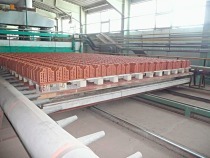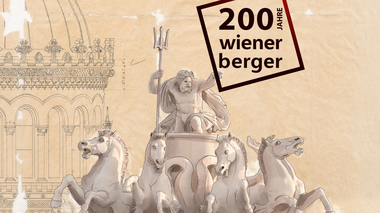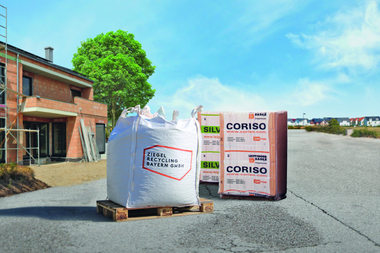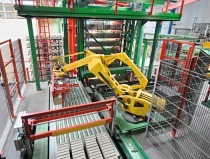First Kiln of Modular Design
The Wienerberger brickworks in Lukovit is more than just a new plant. Lingl designed a path-breaking solution for the simultaneous production of completely different heavy clay products. The core of the new plant is the first Lingl kiln of modular design, in which both heat-insulating Porotherm bricks and horizontally perforated bricks are fired. For the Krumbach-based plant constructor this was a pilot project which Lingl was able to complete successfully only nine months after the start of installation in April 2007.
Wienerberger was founded already in 1819 in Vienna and expanded in the years since 1987 from an Austrian producer to the meanwhile largest brick manufacturing company in the world with more than 250 factories.
Growing demand and higher requirements in terms of the heat insulating properties of bricks led Wienerberger AG to a far-reaching decision for the production location Lukovit, approx. 120 km north-east of the Bulgarian capital Sofia: The two brick plants purchased in 2006 were assessed as being so out-of-date that it was decided to demolish the plants and replace them by a new factory.
Lingl was requested to develop an economical solution for combining the production of two completely different products: the horizontally perforated bricks already well known in this region and the highly heat-insulating Porotherm lightweight bricks which Wienerberger is currently launching on the Bulgarian market. For this purpose Lingl developed a system of machinery which allows the fabrication of this product variety with a minimum of changeover. Two different types of cutter are mounted on a common platform, which is transversely movable. This system allows a fully automatic changeover, almost without any loss of time. The two following robots with automatic gripper exchanging equipment set the wet products continuously onto the drying supports. The dried products are also set on the tunnel kiln cars by robots.
Lingl’s gas-fired tunnel kiln is based on a modular concept which combines the advantages of the well-established, durable wall and roof construction proven in hundreds of Lingl kilns with a new type of quick construction method. Due to the prefabricated wall elements, this kiln, which from its outward appearance is hardly distinguishable from a common Lingl tunnel kiln, could be erected within a fraction of the normal construction time – a great advantage in situations when a short construction time is unavoidable. Moreover, the separate prefabrication of the modules allows the building site and the construction area to be kept almost free from building materials, easily accessible and clean. Another advantage also contributed to convincing Wienerberger of the Lingl module system: In case of a factory relocation the modular kiln construction system facilitates the non-destructive dismantling and the dispatch of the individual elements.
After firing two Lingl robots guarantee the smooth unloading of the bricks from the kiln cars and the transfer to two positioning conveyors. The following two stacking robots form the transport packs which finally are wrapped with shrink foil by a Lingl KombiPack packaging machine. An optional horizontal strapping prior to the shrink foil wrapping gives additional strength and stability to the packs.
In the Lukovit plant a complete Lingl machine control unit with the PC-based operation and visualization system MBVL in combination with a Simatic S7 control system was installed. The characteristics of this system are the simple user guidance, the extensive data storage and the possibility of quick process interventions. These advantages ensure the high flexibility of the plant with an annual capacity of 300 000 t of fired products.
In Bulgaria Lingl has again given an impressive demonstration of the advantages of the company’s problem-solving aptitude. With the design of the machinery as well as the modular construction of the tunnel kiln, the plant constructor has followed a new approach. Lingl owes the fact that these technologies could be realized so successfully for this project to the very pleasant co-operation with the responsible Wienerberger project director, Erwin Traupmann, and all the other members of
the Wienerberger Engineering Team. The joint realization of common objectives for the mutual benefit – this is Lingl’s understanding of being a reliable partner in the brick industry.

